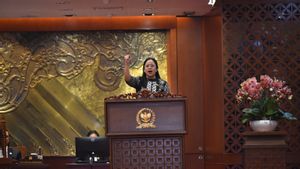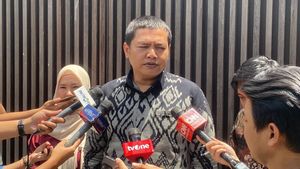JAKARTA - The Financial Services Authority (OJK) encourages women, including housewives, to wisely use loans through products "buy now pay later or buy now paylater" (BNPL) so as not to affect family welfare.
Chief Executive of the Behavior Supervisory of Financial Services Business Actors, Education and Protection of OJK Consumers Friderica Widyasari Dewi said the purpose of creating various financial service products should be a support for the welfare of the family.
"When they use legal financial services, they must be wiser so that the main goal of using financial service products can improve family welfare," said Friderica Widyasari Dewi at the OJK event entitled Women Family Economic Fighters in Surabaya, East Java, Friday.
Friderica explained that there are several wise steps that can be implemented by women, including housewives, in using paylaters, such as making debt recapitulation so that there are no late debts or forgetting to pay.
He reminded that all types of debt through financial products will be recorded in the Financial Information Service System (SILK) so it is necessary to keep in mind the amount of debt, deadline, and interest and other costs that must be paid.
In addition, housewives must be able to manage finances by increasing their income, reducing expenses, and avoiding adding other debts.
SEE ALSO:
Friderica emphasized that debt should not be more than 30 percent of total income so that financial flows remain stable.
He also reminded that in an emergency it is better to sell goods or disburse savings to pay off debts than to take other debts so as to avoid increasing interest and prevent potential bad credit status.
"The most important thing is to use the priority scale to pay off debts," he said.
SEE ALSO:
Friderica said that currently there is still a massive need for education on financial service products so that women, especially housewives, understand the differences in illegal and legal financial services products.
The results of the 2024 National Literacy and Financial Inclusion Survey (SNLIK) by the OJK and the Central Statistics Agency (BPS) showed that the Indonesian population's Financial Literacy Index was 65.43 percent, while the Financial Inclusion Index was 75.02 percent.
"We continue to consistently implement inclusion and literacy inclusion, especially to increase literacy and inclusion indexes, including for housewives," he said.
The English, Chinese, Japanese, Arabic, and French versions are automatically generated by the AI. So there may still be inaccuracies in translating, please always see Indonesian as our main language. (system supported by DigitalSiber.id)



















